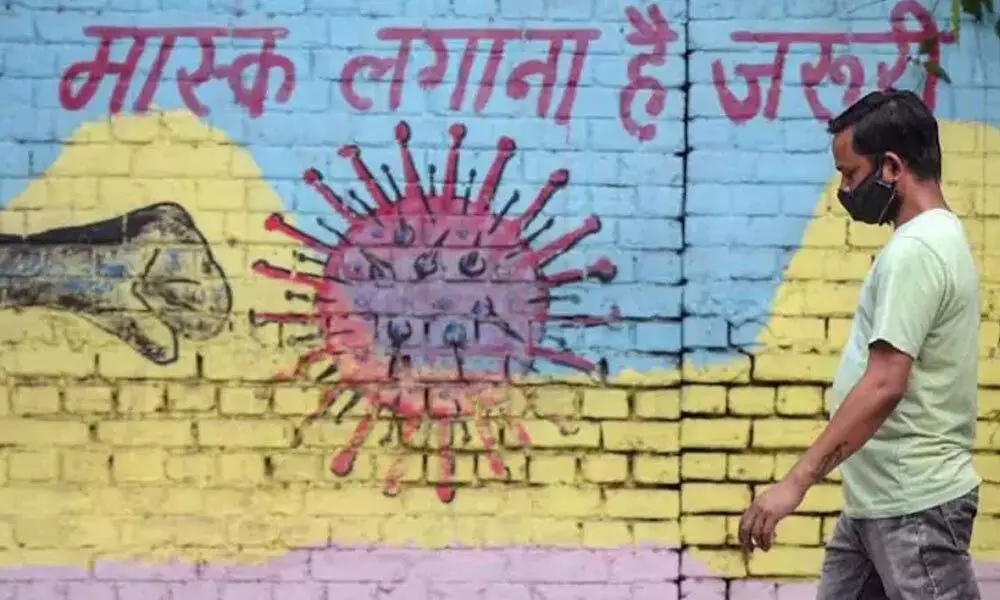Prior infection cuts COVID-19 infection risk for up to 10 months: Lancet study

Prior infection cuts Covid-19 infection risk for up to 10 months, revealed a study in the Lancet. (Image: PTI)
The risk of being infected with SARS-CoV-2, the virus that causes COVID-19, is substantially reduced for up to 10 months following the first infection with the virus, according to a study.
New Delhi: The risk of being infected with SARS-CoV-2, the virus that causes COVID-19, is substantially reduced for up to 10 months following the first infection with the virus, according to a study.
The research, published in the journal Lancet Healthy Longevity on Tuesday, looked at rates of COVID-19 infections between October last year, and February this year among over 2,000 care home residents and staff in England.
The researchers from the University College London (UCL) in the UK compared people who had evidence of a previous infection up to 10 months earlier, as determined by antibody testing, with those who had not been previously infected.
They found that residents with a previous infection were 85 per cent less likely to be infected during this four-month period than those who had never been infected.
Staff members with past infection were 60 per cent less likely to be infected than those who had not had the infection before.
The researchers said this showed strong protection in both groups, but cautioned that the two percentages may not be directly comparable.
This is because the staff may have accessed testing outside the care home, leading to positive tests not being included in the study, they said.
"It's really good news that natural infection protects against reinfection in this time period. The risk of being infected twice appears to be very low," said study lead author Maria Krutikov, from UCL Institute of Health Informatics.
"The fact that prior COVID-19 infection gives a high level of protection to care home residents is also reassuring, given past concerns that these individuals might have less robust immune responses associated with increasing age," Krutikov said.
For the study, 682 residents, with a median age of 86, and 1,429 staff in 100 care homes underwent antibody blood tests in June and July last year following the first wave of COVID-19.
About a third tested positive for antibodies, suggesting they had previously been infected.
Researchers then analysed the results of participants' PCR tests, starting approximately 90 days after the blood samples were taken to ensure the tests did not pick up the initial infection.
PCR tests were taken once a week for staff, and once a month for residents, with further testing in the event of an outbreak.
Positive test results were only included if they were more than 90 days apart to make sure that the same infection was not included more than once.
The number of staff and residents who were reinfected between October and February was very small.
Based on the antibody test results, out of the 634 people who had been previously infected, reinfections occurred in only four residents and 10 members of staff.
Among the 1,477 participants who had never been infected, positive PCR tests occurred in 93 residents and 111 staff.
"This was a unique opportunity to look at the protective effect of natural infection in this cohort ahead of the roll-out of vaccination," said senior study author Laura Shallcross, from UCL Institute of Health Informatics.








